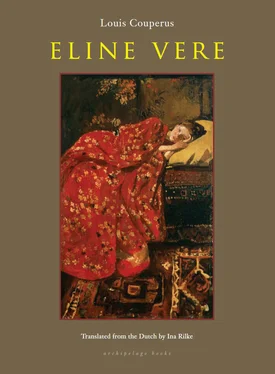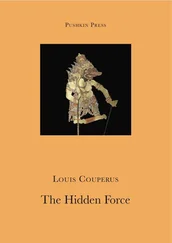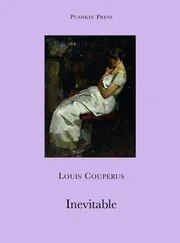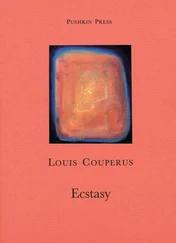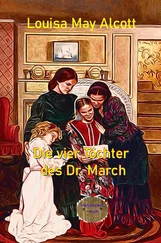. .
Above all, Eline liked conversing with Uncle Daniel’s physician, a man of indeterminate age who was remarkably polite in both manner and speech, and who always seemed to be watching her closely. His interest in her had initially put her on her guard, as if he might discover something within her that she herself was unaware of, some secret that would put her to shame. Yet she was drawn to his amicable, steady gaze as to a magnet, and before long she took to asking him, when she had one of her headaches, to hold his cool outstretched hand close to her forehead for a moment. The first time he had done so had been on his own initiative, and Eline had immediately felt as though a refreshing, invigorating current were passing through her brain. Since then she had become addicted, in a manner of speaking, to the emanations of that hand, which, without even touching, seemed capable of making a cool breeze blow through her overheated skull.
Eline had told him of the difficulties she had sleeping at night, and he had said he would like to try and induce her to sleep by the sheer force of his will, but she had begged him not to: she had so little willpower of her own, and feared losing it altogether if he were capable of exerting such a strong influence on her from afar. Thereupon he had supplied her with a sleeping draught of morphine, which was extremely expensive and which he had mixed himself; he counted out the drops for her in a glass of water. That night she laid herself down to sleep in a haze of blissful contentment; she felt her body becoming weightless, rising up from her bed, her pillows and sheets, and for a moment she found herself floating on currents of softly swirling blue air.
Then she sank into a profound slumber, from which she did not wake until late in the morning. And she was full of praise for Uncle Daniel’s physician for having succeeded where Reijer had always failed — at least he knew how to send her to sleep.
. .
Life went on in much the same manner, with Eline accommodating herself to the humour of the moment. She still had a bad cough, but felt comparatively content nonetheless. Eliza, though a compulsive talker, seemed to like her well enough, and Uncle Daniel, ever gallant if a touch remote, was no less well-disposed towards her. Sometimes, however, she had the feeling that they were putting on an act, in the same way that everyone had put on an act in The Hague. But she had no desire to analyse this doubt, preferring to let her brain slumber in untrammelled lethargy.
One day an envelope arrived from Vincent Vere in New York; it was addressed to Uncle Daniel, to whom it came as rather a surprise, as they were not in the habit of writing to one another. But Eline, who had not heard from her cousin for some time, was all aflutter at the unexpected mention of his name, and couldn’t wait to hear what her uncle would say about the letter. She would not be surprised if Vincent were asking for money.
But in this Eline was mistaken. He had not asked for money, nor did he need a letter of introduction or some other favour. Vincent simply wanted to let them know that he and his friend Lawrence St Clare were planning a trip to Europe, and that they would be stopping in Brussels. They would be sailing to Liverpool, from where they would travel to London and Paris before arriving in Brussels. By the time Uncle Daniel received this news they were already halfway across the Atlantic.
Vincent’s letter revived Eline to some degree from her psychic lethargy. She remembered how Vincent, pale and sickly, had lain on her couch in his Turkish chamber cloak, and how she had nursed him back to health. Her next thought was of Otto, and she fumbled agitatedly for the black enamelled locket on her watch-chain. Had she not fancied that Vincent was in love with her, and she with him? Were there any such feelings still lingering in her heart? No, those feelings were far, far away, like birds that had vanished out of sight.
Uncle and Eliza discussed Vincent’s impending visit briefly, then said no more on the subject. But Eline, though she kept silent, thought a great deal about him and his American friend. She recalled having seen the photograph of St Clare when it fell out of his letter to Vincent; it was on the same day that she had lost her temper with Otto during dinner. She recalled having asked Vincent whether his friend’s hair was fair or dark, but not what he had replied. Nor could she recall what St Clare looked like. She was very curious to see them both.
. .
After some weeks a second letter from Vincent arrived; this time posted from Paris. A few days later the two friends arrived; it was late afternoon, and they stayed to dinner. Uncle and Eliza offered to put them up, out of courtesy, but St Clare declined politely: they had already taken rooms at the Hotel des Flandres.
Vincent had not changed a whit, either in appearance or demeanour. When he and Eline were standing side by side, talking, she caught their reflection in the pier glass, and suddenly noticed that she had aged. He was the same elegantly dressed young man as two years before, and beside her sallow skin and sunken cheeks he looked healthier than she had ever seen him. She, in black lace — she wore nothing else these days — stood there with her thin shoulders and lacklustre eyes gazing at the ruins of her former youthful radiance. . ruined inside and out.
Lawrence St Clare directly made a very favourable impression upon both ladies. Eline had rather imagined him, as an American, to be a little coarse and uncivilised — possibly even spitting, swearing, or demanding whisky — and she was pleasantly surprised by his engaging, easy manner. He was tall and rugged, with a full, dark-blond beard, and in his clear eyes there gleamed a certain pride, but it was a pride that, without a trace of arrogance, betokened character and strength of will. His masterful bearing and air of independence inspired confidence in Eline. Although Vincent had not told her very much about St Clare, she felt almost at once that she had known him for a long time. His frank smile and mild yet penetrating gaze pleased her, and when she glanced about the dinner table she was struck by the calm, wholesome uprightness he exuded, compared to which her uncle’s civility and Eliza’s frothy chitchat, as well as the vague melancholy shared by herself and Vincent, seemed to her false and jaded.
After dinner they took coffee in the reception room. Eline felt at ease in St Clare’s company, and hoped there would be no further callers to disturb them. She had little opportunity to converse with him, though, as Eliza bombarded him with questions about New York, Philadelphia and St Louis. He replied in French, speaking slowly, with a strange accent that Eline found rather charming.
Vincent clasped her hands and stared at her intently; he was grateful for what she had done for him in The Hague, and now felt a pang of compassion for her.
‘I have missed you, Elly!’ he said as they settled themselves in the balcony. ‘But you really ought to put on some weight, you know!’
She gave a light laugh and nervously poked the tip of her shoe into the fleecy white rug.
‘I am quite all right!’ she said. ‘Indeed, I have been feeling rather well lately. Better than before, anyway. And I am very glad to see you again, very glad. You know I have always been fond of you.’
She put out her hand with a generous gesture; he pressed it and moved his chair a little closer.
‘And what do you think of Lawrence?’ he asked. ‘Do you like him?’
‘Yes, he seems very nice.’
‘He is the only man I have ever known who is as good as his word. I don’t trust anyone, not a soul, you see; not even you, not even myself, but I do trust him. . Don’t you find his French accent rather amusing?’
Читать дальше
